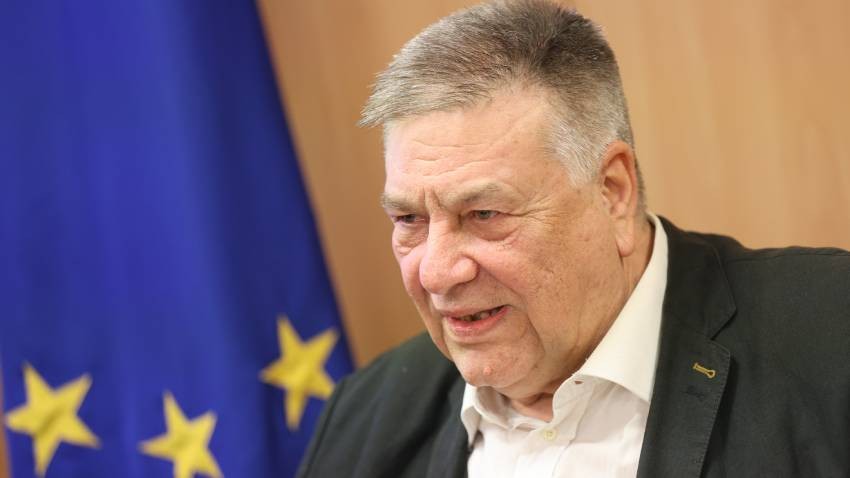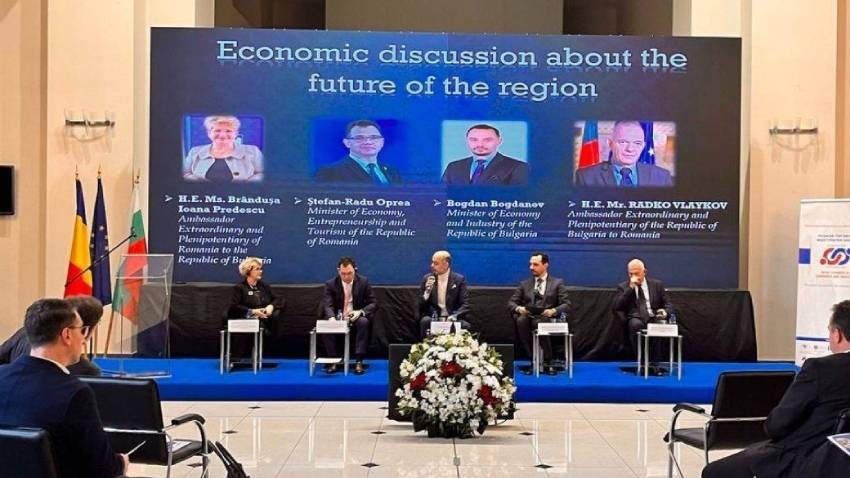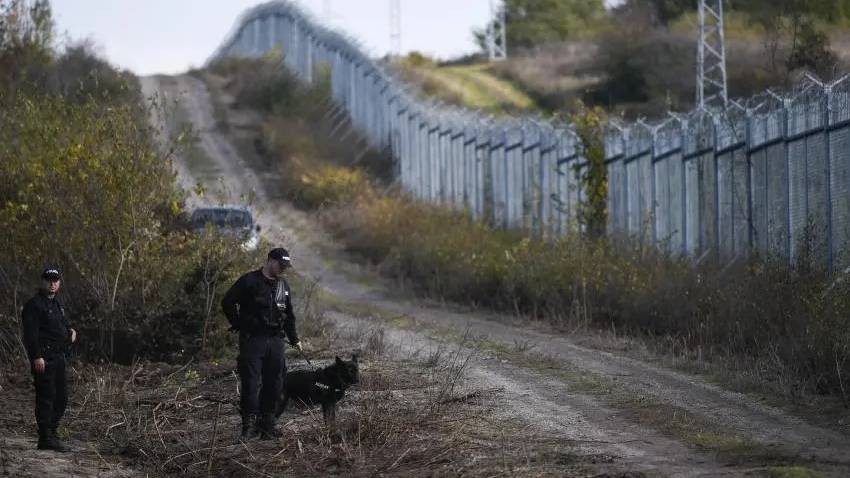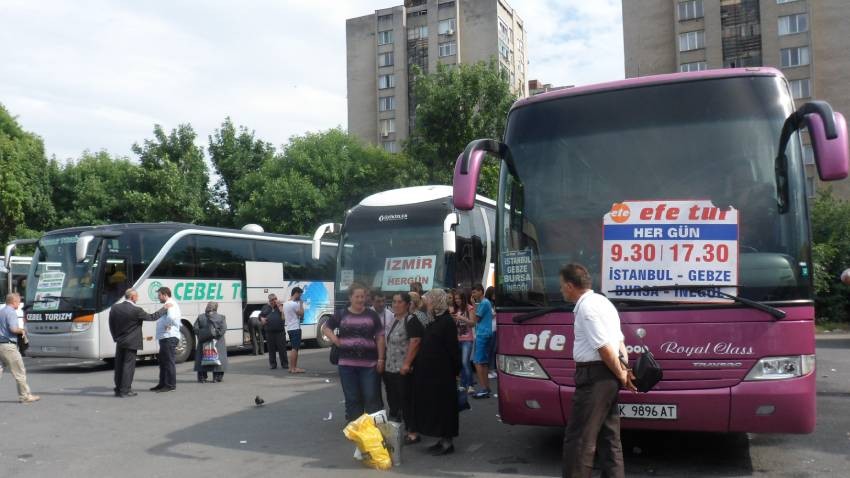Radio Bulgaria invited Sofia University professor Prof. Zdravko Popov to comment on Bulgaria's relations with neighboring Balkan countries in 2023. Prof. Popov is a diplomat, one of the founders and first head of the Diplomatic Institute at the Ministry of Foreign Affairs. Following the geographical azimuths clockwise from north, the conversation starts with Romania.
Russian aggression in Ukraine blocks shipping in the Black Sea. It also hampered traffic along the Bulgarian-Romanian border and turned it into a logistical problem for the EU and NATO.
"Yes, it turns out that a river divides us naturally, but I would say it divides us economically and even culturally. My observation is that we have relatively little dialogue with Romania, regardless of the fact that we are reminded from time to time that we share a common destiny, like our acceptance into the EU, and now Schengen. This is strange because I find it difficult to find much overlap in the policies that the two countries pursue and the way they communicate with the other EU members.”

Bulgaria and Romania are moving on different tracks, but there is a prejudice in the EU that when these two countries have a problem, they should jointly share it and solve it. The war in Ukraine and all the tension in the international environment require us to look for forms of cooperation with countries which we are in common families with and to find ways for bilateral cooperation in all areas. The construction of a third bridge between Bulgaria and Romania over the Danube River is important for the infrastructural development of the region and for Europe.

"The routes that pass through Bulgaria and are directed to Europe must be diversified. There is a traditional route that goes through Belgrade, another through Romania, but Romania is the country that is close to us from the point of view of European membership, of NATO membership, of Black Sea cooperation, of policies regarding the region as a whole. And there should be more connecting roads and bridges built between us. It's really a little strange that this process is kind of slow and it should be sped up. The war in Ukraine diverted much of the Asian routes that can no longer go through Russia and clogged the roads connected to the Caucasus, to Turkey. Bulgaria has become one big funnel that needs to take an ever-increasing traffic," Prof. Popov points out.
The Bulgarian relations with Turkey focused on the problem of illegal migrants, which are an obstacle to the country's acceptance into Schengen, but good neighborliness with Turkey has much greater potential.

"Whatever we do, whatever we think - Turkey remains our neighbor and it is an important neighbor. We should strengthen cooperation with Turkey in many directions and with regard to the Black Sea economic cooperation and security, which is an important topic today. Turkey is somewhat of an intermediary between the East and the West, even between Russia and the USA and we must overcome some of our prejudices and attitudes born of history and conduct a fruitful cooperation in all fields. We cannot turn our backs on our neighbor Turkey simply because it is not a member of the EU. This is not serious. If we want to have a full-fledged Balkan foreign policy that is tied to our national interests and the interests of the region, we should have very active cooperation in all spheres with the Turkish state. This will inevitably have an effect on migration policy and others."
Good relations with neighbors are also an important factor for the development of the Bulgarian border regions. In 2023, the trend of Kardzhali being the only district outside the capital with demographic growth continued. Is the return of Bulgarian citizens from Turkey continuing?

"We must not forget that, regardless of the way in which they left Bulgaria as a result of the so-called ‘revival process’, these people somehow remained attached to Bulgaria. Most of them kept their properties, they have relatives in Bulgaria. They remained linked in terms of language, of education, of friendships. There are too many ties keeping them in this, let's call it dual position. We must have a more profiled policy towards them, and the Bulgarian state must not leave this policy in the hands of one political party. This should be state policy and be part of state relations. Bulgarian Turks are one of the tools for cooperation with Turkey. They are one of the bridges. They themselves see this benefit of being both there and here and enjoying some small opportunities that the European membership provides to Bulgaria."
In the second part of the interview, Prof. Popov examines the strategic cooperation between Bulgaria and Greece, relations with North Macedonia and Serbia's specific path towards the EU.
English publication: Al. MarkovPhotos: balkan-union.eu, BTA, BGNES, AFP
"The last one to quit wins. If we believe and want democracy in Bulgaria to win..., we must persevere, even though it's discouraging," Izabela Shopova from Brisbane, Australia tells Radio Bulgaria Nearly 6,000 people identified themselves as..
On the threshold of the sixth early parliamentary elections in less than three years, the fatigue of the Bulgarian citizens from the administrative hopelessness is visible . This seems to be the case in the political arena as well - proof is the..
"We need unity and togetherness. For us, Bulgaria is our family, it is our home" - Zdravka Vladova-Momcheva, a Bulgarian living in Britain, told Radio Bulgaria. Ten days ago she was in Sofia to receive another award from the Executive Agency for..
Pro-Russian candidate takes lead in first round of presidential election in Romania In a shock development, independent far-right, pro-Russia..

+359 2 9336 661
